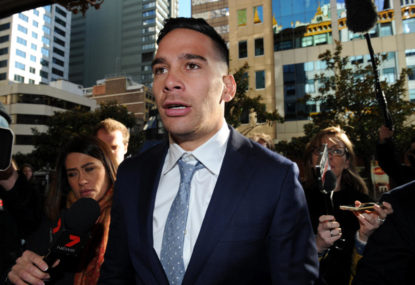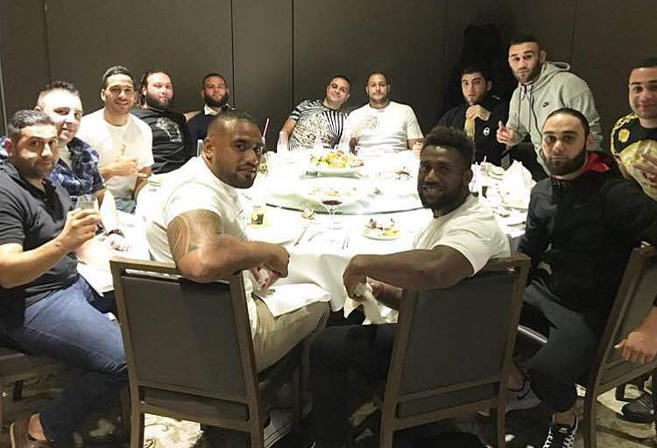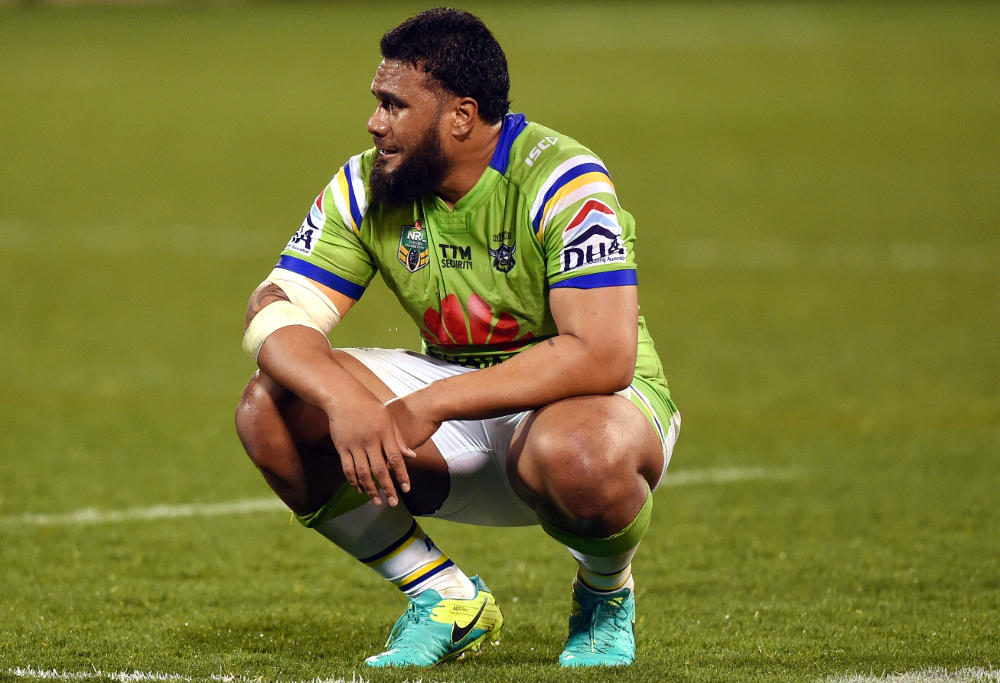NRL Round 8 judiciary: Massive Manly blow as Haumole and DCE banned, Sivo charged for 'stupid' hit
Manly have been slammed by the judiciary with both Daly Cherry-Evans and Haumole Olakau'atu charged for two weeks for their part in a dangerous…

In December last year, Kenny Edwards was charged with a common assault offence relating to domestic violence, but had continued training with the Parramatta Eels until Monday, when he pleaded guilty to the charge in court.
No conviction was recorded but Edwards received a six-month good behaviour bond, and the Parramatta club has suspended him from all duties indefinitely.
Reportedly, he could lose his contract entirely.
Edwards’ final punishment was to be suspended for the first seven games of the season, a decision reached by the Eels in conjunction with the NRL.
Once he’s missed this weekend’s match against the Sea Eagles, Edwards will have already missed as much of the NRL competition as Junior Paulo for his conviction for reckless driving and common assault.
For those offences, the court suspended Paulo’s licence for 12 months and issued a $300 fine.
Neither the NRL’s Integrity Unit nor the Canberra Raiders chose to fine Paulo, although he will have to complete an unspecified amount of club-sanctioned community service.
The difference between the severity of punishment applied to Paulo, compared to a number of his peers, is stark.
In December last year, Andrew Fifita (having already been excluded from the Kangaroos squad) was issued a breach notice and a $20,000 fine for his public support of a convicted criminal. Paulo is a convicted criminal.
In July last year, Corey Norman was convicted of possessing a prohibited drug as well as possessing a prescribed restricted substance, and fined $400 by the court.
The NRL fined Norman $20,000 as well as suspending him from eight rounds of football. Despite being primarily triggered by Norman’s court convictions, the NRL punishments were also justified by evidence he was consorting with known criminals – criminals Paulo was consorting with at the same time.
 The infamous photo (source: Instagram)
The infamous photo (source: Instagram)
It seems odd that the fines issued by the courts in the cases of Paulo and Norman only differ by $100, yet there is a $20,000 discrepancy between what the NRL deemed appropriate for each of them.
Paulo was banned from competing in the Auckland Nines competition as well as the World All Stars game – even though the squad for the latter had already been made public (with Paulo not included) well before this punishment was announced.
One of the variables in the disciplinary dealings of the Integrity Unit is that they are often decided in concert with the player’s club.
Perhaps Raiders CEO Don Furner is a bit of a soft touch? It certainly looks as though the Eels’ approach to player misbehaviour is far harsher than Canberra’s.
Maybe Furner enjoys the Auckland Nines so much that he thinks suspending Paulo from that competition is a blow on par with missing seven rounds during the regular season.
If the Integrity Unit also places that sort of value on the Auckland Nines, it makes Mitchell Pearce’s punishment last year seem harsh indeed. Pearce was unable to play in the Auckland Nines, the World Club Challenge, the Roosters’ trial matches (Paulo played the Raiders’ trial against Newcastle), and eight rounds of the NRL.
Pearce was also fined $125,000. This was, of course, after he was filmed making an unwanted pass at a woman and simulating a sex act with her dog.
It is difficult to see how Paulo has completely escaped a fine and is going to miss only one-eighth as many NRL games as both Pearce and Norman if the punishments are meted out in proportion to player behaviour.

What seems most likely is that Fifita, Pearce and Norman were all punished more severely for their indiscretions making it into the public eye in a more accessible way.
Paulo’s offence arguably is worse than any of that trio’s, yet he appears to be reaping the reward of managing to tailgate and assault a man without being filmed or photographed. Paulo may also benefit from having a smaller public profile than the others mentioned, as well as both the incident – and his subsequent conviction – occurring in the off-season.
Can the Integrity Unit justify a penalty by the position a story occupies in a news bulletin, number amount of times it’s shared on Facebook, or which page it occupies in a newspaper? If they can, Edwards is unlucky to not have had his plea heard a few weeks ago, when cricket coverage seemed more important.
If the role of the Integrity Unit is to enforce strong moral principles, as is implied by the name, should they not punish any misbehaviour they are aware of on its merits, regardless of public prevalence?
It could be hard for the Integrity Unit to rationalise Edwards’ punishment for squirting his partner with water, then pouring a drink on her, exceeding Paulo’s suspension by any significant amount. Indeed, the Magistrate in the case emphasised the seriousness of domestic violence, but described the nature of the offence as “trivial”.
Nevertheless, others may understandably find it difficult to accept should Edwards get off with a lesser punishment than Fifita or Pearce, neither of whom even faced criminal charges for their actions.
Surely one of the simplest steps the Integrity Unit could take to remove some ambiguity from this process is to make punishment decisions independently of offending players’ clubs.
It probably makes sense that clubs should be able to defend their players, as they do at the judiciary for on-field misdemeanours, but having them involved in the final decision seems bound to invite inconsistency, or, at the very least, unnecessary speculation if the public perceives any inconsistency.
While it may seem ridiculous for the Integrity Unit to mirror the NRL’s Match Review Committee when dealing with off-field offences (for example, I don’t expect the Integrity Unit to charge Edwards with grade one domestic violence, and add carry-over points from his grade two drug test switch in 2015), if some sort of loading is applied for the amount of media coverage an offence receives, then perhaps the Integrity Unit ought to reveal to what extent the publicity has affected the charge.
Whether it is fair if the Integrity Unit does factor in the publicity a player’s behaviour receives when deciding on a punishment seems pretty debateable; what do you think Roarers?